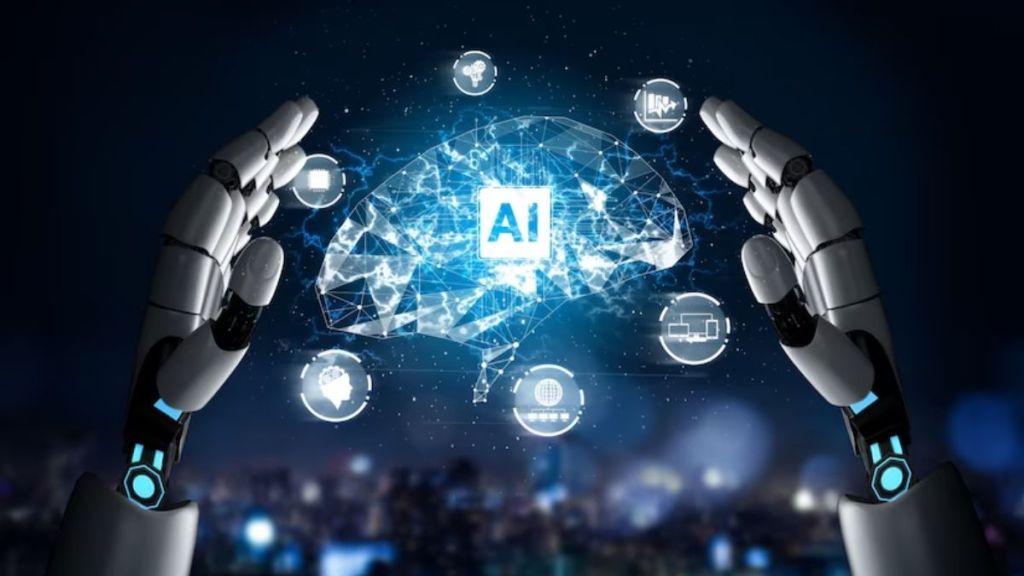Going forward, the belief seems to be that artificial intelligence (AI) will be important for all business operations. From data handling to automation, AI is believed will take businesses to the next level, in a dynamic digital environment. In that respect, enterprise architecture comes into the picture to ensure AI’s alignment with different business objectives. “I believe AI is pivotal in reshaping enterprise architecture by automating tasks, analysing data, and fostering adaptability. Its role can extend to predictive analytics, leveraging historical data to forecast trends and issues. Natural Language Processing (NLP) can enhance communication, while AI-driven security measures can fortify enterprise defences,” Vipin Vindal, CEO, Quarks Technosoft, a software company, told FE TransformX.
Market research suggests that enterprise architecture can benefit from AI applications such as ChatGPT. From what it’s understood, generative AI carries the ability to procure data from different areas, which enterprise architecture can utilise to distribute among different business sections. To develop an AI-based enterprise architecture, the primary step is to consider the need to locate adoption opportunities, which could include fields such as product creation, finance, marketing, supply chain management, and customer relationships, among others. Various applications for AI-based enterprise architecture considered are metadata and analysis of business methodologies, NLP, assessing risks associated with transformation blueprints, data normalisation, linguistic translation, image identification, and model metamorphosis. “I think incorporating AI implies the primacy of extending and unifying businesses’ databases in ways that allow integrated intelligence involving business units, departments, geographies, among others. The AI core capabilities should also include models (such as LLMs) which have been built on external data, so the same can be finetuned and utilised for enterprise purposes. Use cases, from enhancing customer experience to fault detection, can be facilitated when they are built on these capabilities and leverage AI for automation and integration,” Manish Godha, founder and CEO, Advaiya, a business technology consulting company, highlighted.
According to Mordor Intelligence, a market intelligence and advisory firm, the enterprise AI sector has been valued at $25.10 billion for 2024 and is expected to reach $204.79 billion by 2029, at a 52.17% compound annual growth rate (CAGR). Data provided by Bank of America has predicted that the industrial robotics and AI section is expected to clock a $24 billion valuation by 2025. Reportedly, business-oriented AI adoption has witnessed more than double figures in the last five years. As per the annual ’McKinsey Global Survey on AI’ report, business-oriented AI adoption respondents, who stated using AI for around one business section, increased from 20% in 2017 to 50% in 2022. The ‘IBM Global AI Adoption Index 2022’ poll, in accordance with Morning Consult’s research for IBM, found that the global AI adoption percentage went up to 35%, which marked a four-point rise from 2021. Further details from the poll revealed that around 30% of respondents stated that their organisation’s employees were able to save time using AI and automation applications, 66% of companies mentioned AI’s usage for ensuring sustainability, and nearly half of the platforms specified about using AI for information technology (IT) automation and business process, which stood at 54%, develop IT or network capabilities, which stood at 53%, and better customer experiences, which stood at 48%. A 2023 Deloitte survey found that 55% of IT leaders are incorporating AI into their enterprise architecture right from the initial stages.
Despite everything, market experts have highlighted that to have an AI-oriented enterprise architecture structure, the development of governance and ethical AI-based guidelines should be mandatory. It’s believed that regulatory frameworks are needed to ensure data transparency, security and privacy, which should be correlated with a corporation’s goals. Future predictions imply that the creation of a proper enterprise AI architecture requires investment, along with addressing ethical challenges around AI accountability. “The key to AI integration into enterprise architecture seems to lie in employing the right tools. I believe enterprise architecture tools play a crucial role in organising and visualising the complexities of systems and AI integrations. An AI deployment strategy should be architecture-led or influenced by architectural considerations. The success of AI integrations hinges not solely on technology but on harmonising people, processes, data, and technology,” Somdutta Singh, advisor, Government of India, concluded.










